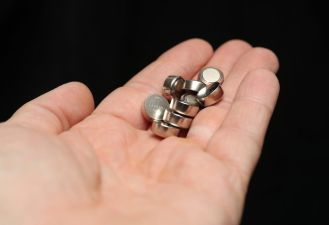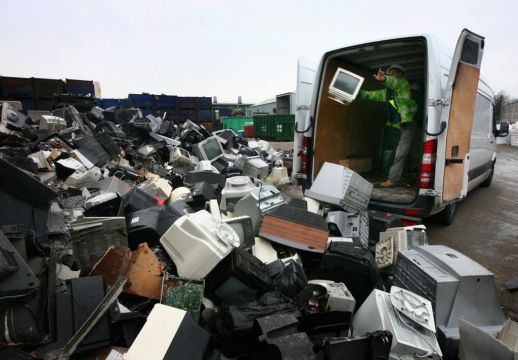A surge in lockdown spring cleaning saw a record amount of electrical waste collected by a recycling scheme.
The scheme was one of the best performing recycling in Europe this year, with 38,724 tonnes of waste electrical items – including 120,000 fridges and 200,000 TVs and monitors – recovered.
The equivalent of more than 46 million used AA portable batteries were also prevented from ending up in landfill, it has been revealed.
The recycling scheme, WEEE Ireland, has warned, however, that the rise in reusing and repairing of electrical goods must be counted towards Ireland’s recycling targets.

It comes as a new new record of 10.93kg of e-waste was recycled per head of population last year by the scheme.
The scheme achieved the biggest, monthly, takeback volume in its 16-year history in July when the first lockdown was lifted with a record 3,763 tonnes of electrical waste collected for recycling.
WEEE Ireland chief executive, Leo Donovan, said: “As a nation we are consuming more electrical goods than ever – with the annual tonnage on the market rising from 15kg a head in 2016 to 21kg a head last year.
“This rise makes meeting the annual EU WEEE Directive target even harder, despite achieving record recycling levels, as it equates to the percentage of goods sold.
“WEEE Ireland has been a huge educator in the areas of reuse and repair, alongside the electrical producers.
“It is time to realistically measure the amount of goods that are kept in circulation, rather than basing targets solely on end-of-life recycling, and also legislate for longer-life technologies such as photovoltaic panels and EV batteries.
“We have to recognise that significant volumes of WEEE are not being handed over to the schemes but going to export, metal scrap and other flows.”
Almost 19 million pieces of e-waste were recovered in 2020, figures also show.
Spring cleaning during lockdown saw significant rises in the amount of easily hoarded small electrical appliances at 22%, and small IT equipment recycled by households.
Figures also show that lockdown restrictions in the construction industry, led to a 25 per cent drop in waste fluorescent lighting and lamps entering recycling.
In 2020, the equivalent of 225,182 tonnes of CO2 emissions were avoided by recycling e-waste through the scheme as opposed to landfilling.
That is the equivalent of the annual carbon consumption of 4,504 hectares of trees, it was claimed.
Mr Donovan added: “Retail collections were higher than previous years despite the challenges of lockdown, including store opening restrictions and the absence of home installations which will always see old machines collected for recycling.

“Some 56 per cent of electrical waste was collected from retailer sites – up 310 tonnes on the previous year, and the sixth year of increases.
“Collection volumes from local authority sites significantly increased by over 1,000 tonnes to 11,736 tonnes in 2020 – 30 per cent of the total volume collected.
“Despite people not being able to travel distances to their local centre for a significant part of 2020 and WEEEE Ireland only able to hold eight public events compared to 50 the previous year, we still succeeded in breaking previous records.”







